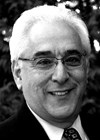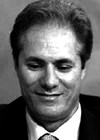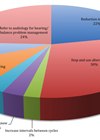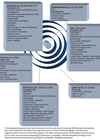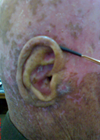Audiology features archive for 2016
Drug side-effects on audiological and vestibular testing
Are they a malingerer? Or perhaps they are inattentive? It may be their drugs! Robert DiSogra considers the side-effects of medication on the test subject. The audiogram serves many purposes in clinical practice. For the audiologist, it helps to differentiate...
The effects of polypharmacy in the elderly
Another pill to cure the ill? Alec Lapira discusses the warning signs of polypharmacy in the elderly population. Polypharmacy in the elderly Polypharmacy – defined as the use of five or more medications – occurs in 20–37% of older people...
Evidence-based practice: management of sudden sensorineural hearing loss
What is the current evidence for medical management of sudden sensorineural hearing loss? Jessica Choong and Stephen O’Leary present a review of the current evidence of treatments options. Sudden sensorineural hearing loss (SSNHL) causes significant distress and, in many cases,...
Audiological monitoring in ototoxicity - Are we doing enough?
In this article Ghada Al-Malky explores the dichotomy of life-saving, yet hearing loss-causing medication, and questions whether the hearing healthcare community is doing enough to prevent preventable hearing loss. Ototoxicity is the damage to hearing and / or balance functions...
A place for everything and everything in its place: the practicalities of randomised clinical trials
Will this pill cure tinnitus? Bonnie Millar describes one trial that has investigated the possibility whilst describing the path of drug trials in the UK. Background In the last quarter of 2014, a clinical trial (QUIET-1; ClinicalTrials.gov Identifier: NCT02315508) commenced...
The search for pharmacological treatments for hearing loss and tinnitus
Where are we in our search for a hearing restoration grail? Nicola Robas leads us through the map pieces discovered in creating a pharmaceutical answer to hearing loss and tinnitus. Together, hearing loss and tinnitus affect over one in six...
Getting to grips with acoustic trauma
Our understanding of hearing loss caused by noise exposure to those in the armed forces is growing in interest and understanding. Research at a cellular level is essential to increase our understanding so that we can better diagnose, manage and...
Detecting hearing loss in the military: are the current methods adequate?
A team at the University of Southampton have been funded by the Ministry of Defence to investigate how to improve the assessment of auditory fitness for duty in the UK Armed Forces. Matt Blyth talks us through the current methods...
Military noise induced hearing loss and the Lost Voices report: the evolution of earshot
Brigadier Robin Garnett gives us a snapshot of the 2014 Royal British Legion report on hearing problems of Service personnel and veterans. The difficulties in assessing and managing hearing loss are reiterated in this article, with an introduction to how...
Audiological approach to treatment of blast-induced tinnitus
Hearing loss and tinnitus resulting from blast waves in the war zone is becoming more common in our clinics. Hamid Jalilvand based in Tehran, shares his experience in audiological rehabilitation and research findings on patients in his clinics with a...
The Veterans Hearing Fund
Dawn Bramham introduces us to the newly launched Veterans Hearing Fund (VHF). This organisation aims to improve the lives of military personnel with hearing loss by providing access to technologies, services and bespoke rehabilitation that are not routinely available via...
Audiology Papers of the Year 2015-16
In this short review we have asked Melanie, Carolina, Josephine and Cherilee to consider the best article they have read in the last 12 months and provide us with a short review. All contributors have managed to succinctly highlight the...


